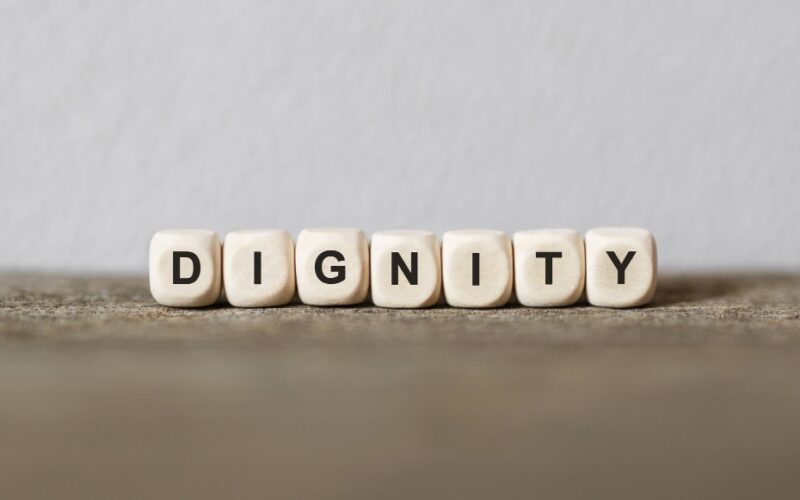The question of “dignity”
It seems like there are a lot of different interpretations of the concept of dignity and this lack of clarity might cause some problems.
For example, the concept of dignity often seems to be used as mere rhetoric, adding only weight or prestige to the concept in policy debates. In this case, dignity conveys a general sense of social unease but explains little about exactly how human dignity is at stake. Sometimes, it seems inappropriate to mention human dignity in politics, as it causes a nausea factor, and expressing it seems to threaten those who are experiencing or are familiar with the human conditions in which there is a clamor for human dignity. Some people also seem to do it for attention, but there is no detailed explanation as to why these activities are done and how uncomfortable it is to witness them.
Moreover, because human dignity is seen as a basic concept, its use may imply a level of social consensus that simply does not exist. If someone says something that violates human dignity, people are expected to agree with it to some extent. However, modern societies are often pluralistic, and in pluralistic societies, it is often difficult to reach a consensus, whether on human dignity or other complex social and ethical issues introduced by scientific innovation. There is not even agreement on the basis of human dignity, whether faith-based or secular, let alone what it entails. In the debate over stem cell research, for example, not everyone agrees on the moral status of embryos and, therefore, cannot agree on the extent to which embryonic stem cell research challenges human dignity.
Thus, the use of dignity does not necessarily represent a widely accepted social value, but rather may express a particular worldview — one that may not even reflect the opinion of the majority. In the context of legal instruments and policy documents, the use and content of human dignity may amount to “political compromises influenced by cultural, political, constitutional and other conditions, all of which can evolve and change.” In more extreme cases, it may involve “intolerant voices (whether majority or influential minority) expressing negative attitudes towards certain practices, which are then translated into limitations ostensibly to respect human dignity” (Caulfield, 2005).
Values related to our humanity itself:
Some people think it is arbitrary to say that we are born with dignity, but not the day before when we were in the womb. So, when do we get dignity? There is no easy answer to this question, but at present, there is no separate legal recognition for unborn children under the Human Rights Convention or the common law of England and Wales or Scottish law.
Can we lose it?
According to the Universal Declaration of Human Rights, our rights are “inalienable” – they cannot be taken away or given up. That’s because the dignity we possess, which gives us these rights, is also inalienable. That’s why our rights last until we die.
Some “right to die” activists say that some people do not feel very dignified at the end of their lives. They don’t think there’s any dignity in it letting someone die a painful death rather than having a loved one help them end their own life painlessly. This is clearly a very difficult issue and continues to be brought before the courts and debated. Campaigners for and against assisted suicide argue that dignity is on their side.
What does dignity do to your rights?
Dignity means prohibiting certain acts, such as torture, because we want to “protect the dignity and physical and mental health of the individual.” In this sense, dignity is what we have, and we want to protect it from destruction.
For other rights, such as the right to health, dignity is important. We want to help people achieve. We ensure the basic right of people to a life of dignity.
We also believe that rights, such as the right not to be discriminated against, are essential because all people are “free and equal in dignity and rights.” Here, dignity is something we respect — acknowledging that everyone has it. That’s something we can never lose.
The concept of dignity is fundamental to how we see ourselves. It brings together people from all cultures and faiths, eventually leading to a widespread recognition that we need to protect and realize this dignity for every human being. We do this through human rights (Slade, 2017).
Reference:
Caulfield, T. (2005). Human Dignity as a Criterion for Science Policy. [online] Plos Medicine. Available at: https://doi.org/10.1371/journal.pmed.0020244 [Accessed 9 July 2022].
Slade, H. (2017). What is Dignity and What Does it Have to Do With Our Rights? [online] EachOther. Available at: https://eachother.org.uk/what-is-dignity-and-what-does-it-have-to-do-with-our-rights/ [Accessed 9 July 2022].
